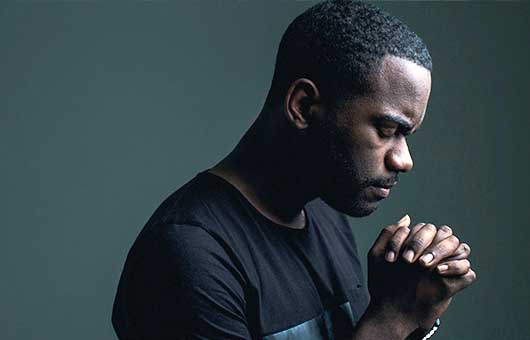By Can Grace Kaiso
Prayer is not just an exercise. It is life (Oswald Chambers). Prayer ushers us into the presence of God the Creator of the Universe in whom we live, move and have our being (Acts 17:28).
Prayer is as vital as the air we breathe because it is the lifeblood of a believer.
There are many ways of defining prayer, but we can sum them up as the expression of our relationship with God.
Unlike human relationships which differ with each individual, God’s relationship with each of us is special.
It is a known fact that for a close bonding to exist in any relationship, both parties have to reach out to each other and also respond accordingly.
God has already taken the initiative to invite us to a deeper relationship with Him. We pray, trusting that He will reach out to us because prayer is the only way we can respond to Him.
As humans, our relationships can progress through various stages; from casual acquaintances to deep trust.
We normally begin our prayer-relationship with God verbally.
In doing so, we say our prayers either alone or in a group. In some instances, we use scripted prayers.
That, of course, is a legitimate way of praying. However, many times we get stuck at the verbal stage even when God might be calling us to progress beyond it.
As we grow in prayer, we learn to listen more and experience God’s presence in wordless quiet.
In learning to pray, we learn by doing. We can seek help from others who are a little further along the journey of faith and ask for guidance from the Holy Spirit.
However, prayer must be an act of our own will, freely offered in response to God’s love for us.

Importance of prayer
This foundation of our relationship with God is the key to a fruitful life and effective ministry.
We ought to know that Jesus’ disciples made only one request about prayer for themselves: “Lord, teach us to pray (Luke 11:1).
This suggests in their experience, prayer was the engine behind the ministry of Jesus and the flavour that permeated His life.
They recognized that their resources were not equal to the demands of the unfolding ministry and calling.
This has been the experience of Christians for generations.
Billy Graham observes: “The Christian life is not a constant high. I have my moments of deep discouragement. I have to go to God in prayer with tears in my eyes, and say o God forgive me or help me.”
Baker Eddy also notes: “I believe that prayer is our powerful contact with the greatest force in the Universe.”
Prayer connects us to the power that is behind the created order.
Without this power, we are incomplete. This power working in our lives opens up endless opportunities for renewal, guidance, growth, worship, service and blessings.
- Prayer enables us to bear fruits of repentance and renewal.
Through prayer, we access the throne of grace through Jesus Christ any time we need it.
One of the obstacles to our prayers is unconfessed sin (Isaiah 59.2, Psalms 66:18).
Prayer brings us into the realm of God’s presence – a Holy God in whom there is no darkness.
Inevitably, if we do not want our relationship with the Holy God to break and for our prayers to be hindered, we take on His promise.
“If we confess our sins, He is faithful and just and He will forgive our sins and purify us from all unrighteousness” (1John.1.9).
Consequently, our relationship is restored and our wills are aligned with that of God. - Prayer guides us in making choices. Through prayer, we find God’s will. Our life journey is characterised by making critical choices.
For instance, in the early Church, the Apostles needed to make critical decisions regarding the future ministry plans, as to whether the Gospel was only meant to benefit the Jews or would include others.
Through praying, they were guided to reach out to the Gentiles. This brought unity in purpose (Acts 4:24-31, 22:17). - Prayer facilitates growth (spiritual, geographical and numerical).
As I write this, I am reminded of our Sunday school chorus: “Read your Bible and pray every day, pray every day if you want to grow…”
In the early Church, believers gathered and prayed together regularly. This deepened their fellowship with God and one another.
It is reported that their numbers were added on day- by-day (Acts 2:12-26).
Prayer has preceded the expansion of the Gospel even in hostile environments. - Prayer is the central element of our private and public worship. It is an important way to experience God.
Through prayer, we communicate with God, bring our problems to Him, seek His forgiveness and help. - Prayer ushers us into service. It was through prayer that I felt the call to the ordained ministry.
In the early Church, there was a need for more workers due to the growth in the number of believers.
So, through prayer more leaders were called and commissioned.
The call of Cornelius is another example of the fruit of prayer (Acts 10). - Prayer is a channel for blessings. Prayers of a righteous man are powerful and effective.
Prayer saved Daniel, a righteous man from the lions’ den (Daniel 6:11).
Joshua, while in battle, prayed that the sun would not go down, and God granted his request.
Hannah longed for a child, and in prayer, poured her soul and great anguish, and God answered her prayer, saving her from the pain of childlessness. (1Sam 1:10-18).
Day by day, we experience God’s blessings through prayer, including healing, providence, protection, joy and hope.
This is more striking when God sees us through situations like those of Covid-19 pandemic or Ebola outbreak.
God shielded us, provided for us, and sustained us in all our losses of people and livelihoods.

Jesus’ example
Prayer is not an extra -curricular for the Christian or in the life of the Church.
Without prayer, we cannot go alone however powerful we may seem to be at other times.
Because of this reality, we are encouraged to pray without ceasing (1Thes. 5:16-18).
It is with this understanding of the centrality of prayer that Martin Luther underlines that; to be a Christian without prayer is no more possible than to be alive without breathing.
Christ demonstrates this in his life and ministry. Jesus prayed often. When He was baptized (Luke 3:21), He withdrew into the wilderness and prayed (Luke 5:16).
He went out to the mountain to pray and continued all night (Luke 6:12).
In response to the request by His disciples, Jesus shared a prayer which would be the pattern for all his disciples (Matthew 6:9-13).
In this prayer, there are three elements: The first part includes praise and worship (Matthew 6:9).
Jesus introduces us how to address ourselves to God and come before Him as our sovereign creator with boldness, but also with reverence.
God is our Father; gracious, loving and forgiving. He will not deny us anything that is good for us.
No doubt, He may deny us things because He foresees that granting them at a particular time might distract or be destructive to us.
The second part moves on to praying for God’s will to be done. We can often pray with selfish desires and wrong motives.
When you ask, you may not receive because you have a wrong motive to spend what you get on your pleasures (James 4:3).

We pray, seeking that the Earth may be made more like heaven by our observance of God’s will (6:13).
The eyes of the Lord are on the righteous, and his ears are attentive to their prayers (1Peter 3:12 and Psalms 34:15).
The third is about praying for ourselves and others (Matthew 6:11) as well as asking for strength to deal with temptations (Matthew 6:13).
Through this prayer, Jesus illustrates that nothing is beyond the reach of God’s power.
Whatever the invading anxiety is in your life, you can go before God and spread it out.
When blessings come, you can thank God. When burdens come, you can seek God’s assistance.
When you fail, you can ask for God’s forgiveness. When you have succeeded, you can praise God for His help.
When you do not know what to do, ask God for His guidance. You can pray to God about anything.
Not withstanding this, the primary focus of prayer is not us. It is God; His presence, purpose, proclamation and plan.
The ultimate purpose of prayer is that we may become sensitive to God’s presence and so in tune with His purpose that we might be used to spread the message of His love across deserts and oceans.
+++++++++++++++++++++++++++++++++++++++++
Subscribe to our website and be the first to receive great Christian news, health information, pastoral guidance, environment, farming and many others. Also, Like and follow us on Facebook at Good News UG.






















